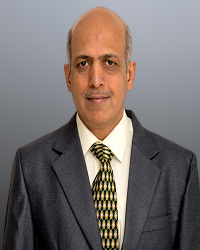Search Result: 2

Dr Milind Shah
M.S. GENERAL SURGERY
Registration No
562700
Language
English, ગુજરાતી, हिंदी, मराठी

26 years experience overall

Nashik , Nashik
MON- SAT, MON- SAT(09:00 AM-05:30 PM)

Dr Prashant Patil
MBBS, MRCS, FMAS, FIGS, FBS
Registration No
5004725
Language
English, मराठी

14 years experience overall

Nashik , Nashik
MON- SAT(09:00 AM-05:30 PM)
Frequently Asked Questions for Inguinal Hernia in Nashik
Both open and laparoscopic hernia repair techniques have their advantages and disadvantages. Open surgery allows for direct visualization and repair of the hernia but may have a longer recovery time. Laparoscopic surgery involves smaller incisions and faster recovery, but it may not be suitable for all types of hernias. Your surgeon will discuss the best approach for your specific case
Common side effects of Inguinal hernia surgery include pain or discomfort at the surgical site, swelling, bruising, and difficulty urinating or having a bowel movement. These side effects are usually temporary and improve with time.
Having an inguinal hernia does increase the risk of developing another hernia in the future. However, with proper treatment and lifestyle modifications, such as avoiding heavy lifting and maintaining a healthy weight, the risk can be minimized.
There is no specific age limit for Inguinal hernia surgery. It can be performed at any age, depending on the individual’s overall health and the severity of the hernia. Your surgeon will assess your condition and determine the best time for surgery.
Inguinal hernia surgery is generally considered safe. However, like any surgical procedure, there are potential risks and complications such as infection, bleeding, damage to surrounding structures, or recurrence of the hernia. Your surgeon will discuss these risks with you before the surgery.
Inguinal hernia surgery is considered minor or intermediate surgery. It can usually be performed as an outpatient procedure, meaning you can go home the same day. However, there may be cases where an overnight stay is required.
Eligibility criteria for Inguinal hernia repair depends on factors such as the size and severity of the hernia, overall health status, and any underlying medical conditions. Your surgeon will evaluate these factors to determine if surgery is appropriate for you.
The time required to complete Inguinal hernia repair depends on the complexity of the hernia and the surgical technique used. Generally, it takes around 1-2 hours to complete the procedure.
There are many hospitals that offer excellent Inguinal hernia repair services. It is important to choose a hospital with experienced surgeons, state-of-the-art facilities, and a good track record in performing hernia repairs.
Post-procedure care for Inguinal hernia repair may include pain management, wound care, and gradually increasing physical activities. Your doctor will provide detailed instructions on how to care for the surgical site and when to follow up.
Preparation for Inguinal hernia repair may involve fasting before the surgery, stopping certain medications, and undergoing medical tests. Your doctor will provide specific instructions on how to prepare for the procedure.
The recovery time for Inguinal hernia repair varies depending on the individual and the surgical technique used. Generally, most people can resume normal activities within 2-4 weeks after surgery, but it may take several months to fully recover.
The success rate of Inguinal hernia repair is generally high, with a low risk of recurrence. Studies have shown success rates ranging from 90% to 99% depending on the technique used and the surgeon’s experience.
To find the best doctors for Inguinal hernia repair, you can ask for recommendations from your primary care doctors, friends, or family members. It is also helpful to research online and read reviews from patients who have undergone hernia repairs.
A general surgeon is a specialist who performs Inguinal hernia repair. They have the necessary skills and expertise to diagnose and treat various types of hernias, including inguinal hernias.
Inguinal hernia repair is a surgical procedure to repair a hernia that occurs in the groin area. It involves pushing the hernia back into place and strengthening the weakened muscles or tissues using stitches or synthetic mesh.
A doctor who performs an Inguinal hernia repair should be a qualified general surgeon. They should have completed medical school, a surgical residency program, and possess specific training in hernia repair techniques.
Related Procedures in Nashik
- Doctors for Appendicitis in Nashik
- Doctors for Inguinal Hernia in Nashik
- Doctors for Incisional Hernia in Nashik
- Doctors for Endoscopy in Nashik
- Doctors for Colonoscopy in Nashik
- Doctors for Umbilical Hernia in Nashik
- Doctors for Whipple procedure in Nashik
- Doctors for ERCP Stone Removal in Nashik
- Doctors for Epigastric Hernia in Nashik
- Doctors for Sleeve gastrectomy in Nashik
- Doctors for Piles Surgery in Nashik
- Doctors for Gallstones Removal in Nashik
Related Treatments in Nashik
- Doctors for Cirrhosis Treatment in Nashik
- Doctors for Constipation Treatment in Nashik
- Doctors for Crohns Disease Treatment in Nashik
- Doctors for Gallstones Treatment in Nashik
- Doctors for Irritable Bowel Syndrome Treatment in Nashik
- Doctors for Portal Hypertension Treatment in Nashik
- Doctors for Rectal Prolapse Treatment in Nashik
- Doctors for Ulcerative Colitis Treatment in Nashik
Other Specialities in Nashik
- Best Urologist in Nashik
- Best Pulmonologist in Nashik
- Best General Physician in Nashik
- Best Endocrinologist in Nashik
- Best Cardiologist in Nashik
- Best Oncologist in Nashik
- Best Radiologist in Nashik
- Best Orthopedics in Nashik
- Best Hepatologist in Nashik
- Best Gynecologist in Nashik
- Best Dermatologist in Nashik
- Best Gastroenterologist in Nashik
- Best Psychologist in Nashik
- Best Ent Specialist in Nashik
- Best Nephrologist in Nashik
- Best Rheumatologist in Nashik
- Best Diabetologist in Nashik
- Best Psychiatrist in Nashik
- Best Neonatologist in Nashik
- Best Dentist in Nashik
- Best Dietitian in Nashik
- Best Haematologist in Nashik
- Best Pediatrics in Nashik
- Best General Surgeon in Nashik
Top Hospitals in India
- Hospitals in Ahmedabad
- Hospitals in Bangalore
- Hospitals in Bhubaneswar
- Hospitals in Bilaspur
- Hospitals in Chennai
- Hospitals in Delhi
- Hospitals in Guwahati
- Hospitals in Hyderabad
- Hospitals in Indore
- Hospitals in Kolkata
- Hospitals in Madurai
- Hospitals in Mumbai
- Hospitals in Mysore
- Hospitals in Nashik
- Hospitals in Noida
- Hospitals in Visakhapatnam
- Hospitals in Lucknow
- Hospitals in Bhopal
- Hospitals in Karur
- Hospitals in Kochi
- Hospitals in Nellore
- Hospitals in Trichy
- Hospitals in Kakinada
© Copyright 2024. Apollo Hospitals Group. All Rights Reserved.




 Call Now
Call Now


